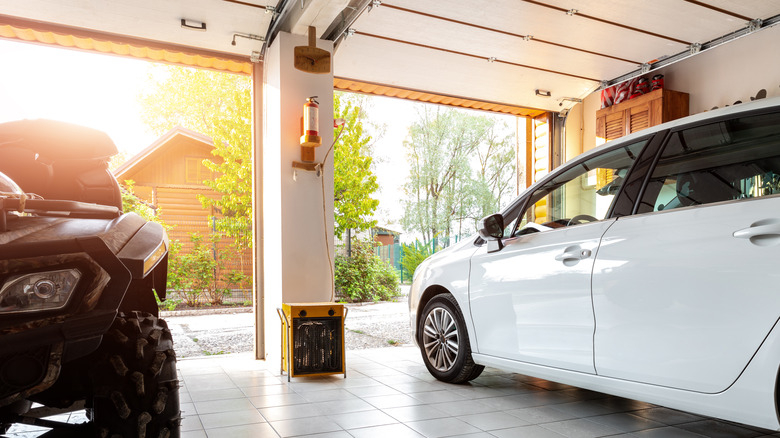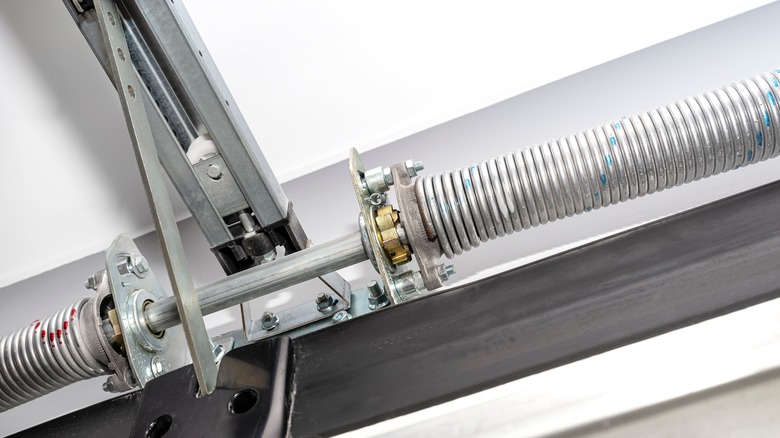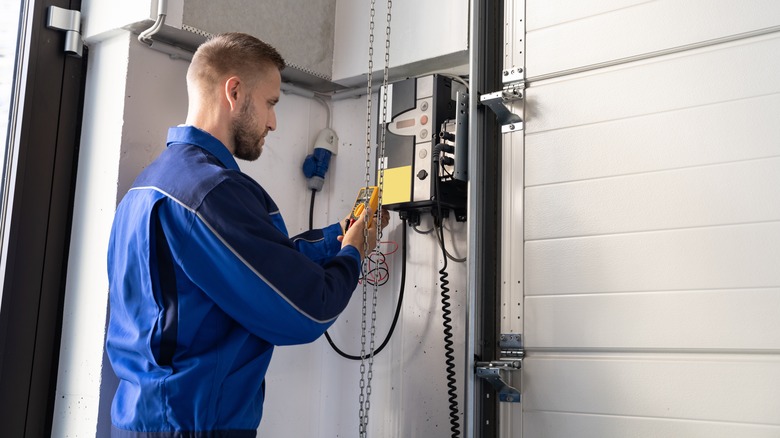How To Repair Your Noisy Garage Door (Your Neighbors Will Thank You)
Raising your garage door only to hear rattles and squeaks is no way to begin and end a day, may it be for you or those once peacefully residing nearby. Your first instinct may lead you to a professional to solve the issue, but it could just as easily be a DIY project given the right circumstance. The first step in making that determination is cueing your ears into the kind of noise echoing about your garage.
Though it may simply sound like an annoyance at first, the racket coming from your garage door can actually serve as a beacon. A squeak or a squeal, for example, likely means one of the door's moving parts needs to be oiled. A rattling or vibrating sound may indicate a few nuts and bolts have become loose. The motor needs attention if it's producing a straining sound, and the door needs assistance if it's banging about. Every noise indicates something different. If you want to attempt the repair on your own, put your ears to work before your hands.
Pinpointing and quieting the noise
Pinpointing the exact origin of a noisy garage door is often a trial-and-error affair. These doors exist in a small, enclosed space, so the noise is going to sound all-encompassing. If you're able to open and close the door a few times without causing more damage, try standing inside and outside the garage as you operate it. This will help guide you to the next best step, whether that's lubricating the tracks or tightening some screws.
Once you're satisfied with an initial diagnosis, it's time to prep the door for maintenance. Those with motors will need the electricity cut off completely to avoid unintentional movements. Manual doors need to be locked into place if raised in any way.
If oiling the moving parts is your solution, you'll want to use either a silicone or lithium-based lubricant. Apply it thoroughly on all rollers, tracks, hinges, and springs, and around the door frame and panels, too. For loose nuts and bolts, grab a screwdriver or wrench and get to cranking; just be sure not to overtighten these parts. You don't want to cause more damage by stripping the holes altogether.
When to call in a professional
Lubricating or tightening a garage door is often an easy and safe task to perform on your own. If you've done so and the problem persists, it likely means a part needs to be replaced or a larger issue is at play, such as an unbalanced door or faulty motor. A professional will need to be called in for either instance.
Overhead garage doors are heavy, to put it bluntly, and handling them beyond basic maintenance requires a specific set of tools and skills. Removing a hinge or spring at the wrong time or from the wrong place can cause the whole thing to come crashing down. This won't just put you at risk of injury but will also put your home at risk of damage.
Luckily, such calls to a professional won't usually break the bank. Unless the door needs to be fully replaced, repairs can cost as little as $150. The highest cost on average is right around $400, though the price can increase depending on the door type. A wooden garage door, for example, can be more expensive to repair than an aluminum or fiberglass door.


